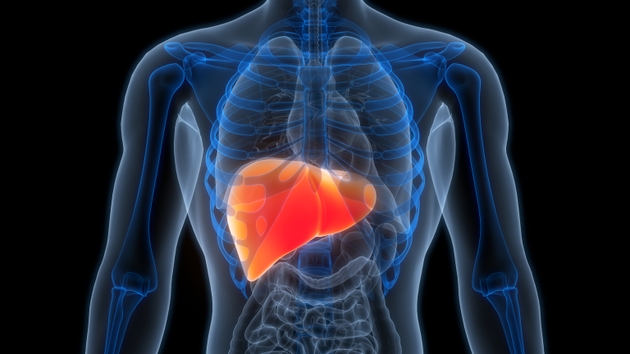Health
Merck and Eisai’s Keytruda-Lenvima Combo Fails Liver Cancer Trial

Merck & Co. and Eisai Co., Ltd. announced disappointing results from their late-stage clinical trial investigating the combination of Keytruda, an immunotherapy, and Lenvima, a targeted therapy, for the treatment of non-metastatic hepatocellular carcinoma (HCC). The trial did not meet one of its primary endpoints during an interim analysis conducted in October 2023.
The combination aimed to enhance treatment efficacy when used alongside transarterial chemoembolization (TACE), a common procedure for patients with this type of liver cancer. The failure to achieve key objectives raises significant questions about the future of this treatment strategy and its potential impacts on the ongoing battle against liver cancer.
Clinical Trial Setbacks
The clinical trial involved a comprehensive evaluation of the treatment’s effectiveness in improving patient outcomes compared to standard care methods. This setback comes at a time when both companies have been investing heavily in research aimed at expanding treatment options for liver cancer, which remains a leading cause of cancer-related deaths globally.
In the interim analysis, the combination therapy did not demonstrate a statistically significant improvement in the primary endpoint, which was likely related to overall survival or progression-free survival rates. The companies are currently analyzing the full data set to understand the implications of these results better.
Implications for Future Research
The outcome of this trial could have broader implications for the development of new therapeutic regimens for liver cancer. Both Keytruda and Lenvima have shown promise in various cancer types, but their effectiveness in HCC when used together has now come into question.
Liver cancer treatment remains a complex challenge, with limited options available for non-metastatic cases. Experts in the field will likely scrutinize these findings closely to determine if modifications to the treatment protocol could yield better results in future trials.
The companies have not yet announced whether they will continue to pursue this combination therapy in subsequent studies, but the need for innovative approaches to combat liver cancer remains urgent. As the medical community awaits further analysis, the hope is that this setback will lead to refinements that enhance treatment efficacy for patients facing this challenging disease.
-

 Education2 months ago
Education2 months agoBrandon University’s Failed $5 Million Project Sparks Oversight Review
-

 Lifestyle3 months ago
Lifestyle3 months agoWinnipeg Celebrates Culinary Creativity During Le Burger Week 2025
-

 Science3 months ago
Science3 months agoMicrosoft Confirms U.S. Law Overrules Canadian Data Sovereignty
-

 Health3 months ago
Health3 months agoMontreal’s Groupe Marcelle Leads Canadian Cosmetic Industry Growth
-

 Science3 months ago
Science3 months agoTech Innovator Amandipp Singh Transforms Hiring for Disabled
-

 Technology3 months ago
Technology3 months agoDragon Ball: Sparking! Zero Launching on Switch and Switch 2 This November
-

 Education3 months ago
Education3 months agoRed River College Launches New Programs to Address Industry Needs
-

 Technology3 months ago
Technology3 months agoGoogle Pixel 10 Pro Fold Specs Unveiled Ahead of Launch
-

 Technology1 month ago
Technology1 month agoDiscord Faces Serious Security Breach Affecting Millions
-

 Business2 months ago
Business2 months agoRocket Lab Reports Strong Q2 2025 Revenue Growth and Future Plans
-

 Science3 months ago
Science3 months agoChina’s Wukong Spacesuit Sets New Standard for AI in Space
-

 Education3 months ago
Education3 months agoAlberta Teachers’ Strike: Potential Impacts on Students and Families
-

 Technology3 months ago
Technology3 months agoWorld of Warcraft Players Buzz Over 19-Quest Bee Challenge
-

 Business3 months ago
Business3 months agoNew Estimates Reveal ChatGPT-5 Energy Use Could Soar
-

 Business3 months ago
Business3 months agoDawson City Residents Rally Around Buy Canadian Movement
-

 Education3 months ago
Education3 months agoNew SĆIȺNEW̱ SṮEȽIṮḴEȽ Elementary Opens in Langford for 2025/2026 Year
-

 Technology1 month ago
Technology1 month agoHuawei MatePad 12X Redefines Tablet Experience for Professionals
-

 Technology3 months ago
Technology3 months agoFuture Entertainment Launches DDoD with Gameplay Trailer Showcase
-

 Business3 months ago
Business3 months agoBNA Brewing to Open New Bowling Alley in Downtown Penticton
-

 Technology3 months ago
Technology3 months agoGlobal Launch of Ragnarok M: Classic Set for September 3, 2025
-

 Technology3 months ago
Technology3 months agoInnovative 140W GaN Travel Adapter Combines Power and Convenience
-

 Science3 months ago
Science3 months agoXi Labs Innovates with New AI Operating System Set for 2025 Launch
-

 Technology3 months ago
Technology3 months agoNew IDR01 Smart Ring Offers Advanced Sports Tracking for $169
-

 Technology3 months ago
Technology3 months agoDiscover the Relaxing Charm of Tiny Bookshop: A Cozy Gaming Escape










